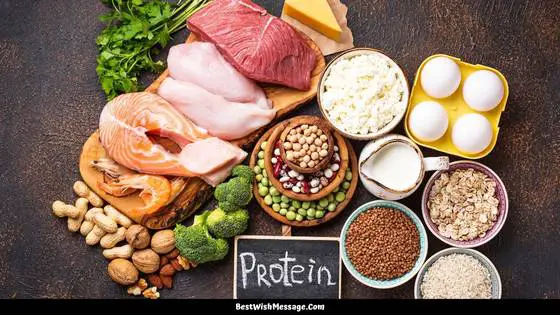Proper nutrition is crucial for a child’s growth and development. While genetics play a significant role, the right diet can maximize height potential. Here are eight simple and effective diet tips to help kids grow taller.
Effective Diet Tips for Taller Kids
1. Include Protein-Rich Foods
Protein is essential for growth as it supports muscle and tissue development.

- Sources: Eggs, lean meats, fish, beans, tofu, and dairy products.
- Serving Tips: Incorporate protein into every meal, such as scrambled eggs for breakfast or chicken salad for lunch.
- Protein aids in the production of growth hormones, essential for height increase.
Encourage variety to ensure a well-balanced intake of amino acids for optimal growth.
2. Add Calcium-Rich Foods
Calcium strengthens bones, a key factor in height growth.
- Sources: Milk, cheese, yogurt, broccoli, and almonds.
- Tips: Offer smoothies made with milk and fruits or yogurt as a snack.
Calcium enhances bone density, reducing the risk of fractures and supporting overall growth. Combine with Vitamin D to improve calcium absorption.
3. Boost Vitamin D Intake
Vitamin D plays a vital role in bone health and growth.
- Sources: Fortified cereals, fish (like salmon and mackerel), egg yolks, and sunlight exposure.
- Serving Ideas: Serve grilled salmon or eggs during meals.
Ensure daily outdoor playtime to naturally synthesize Vitamin D. Lack of Vitamin D can hinder bone growth, so consider supplements if advised by a doctor.
4. Focus on Zinc-Rich Foods
Zinc is a crucial mineral for growth and immunity.

- Sources: Nuts, seeds, whole grains, shellfish, and legumes.
- Tips: Add pumpkin seeds to snacks or serve whole-grain bread.
Zinc deficiencies can stunt growth. Regularly including zinc-rich foods ensures your child reaches their height potential.
5. Incorporate Healthy Fats
Healthy fats are necessary for hormone production, including growth hormones.
- Sources: Avocados, nuts, seeds, olive oil, and fatty fish.
- Serving Tips: Include avocado slices in sandwiches or drizzle olive oil over salads.
Omega-3 fatty acids, found in fatty fish, support bone health and overall growth. Avoid trans fats and prioritize natural sources.
6. Ensure Sufficient Carbohydrates
Carbohydrates provide the energy needed for growth and physical activity.
- Sources: Whole grains, oats, quinoa, sweet potatoes, and fruits.
- Tips: Replace refined carbs with whole grains for sustained energy.
Carbohydrates fuel active children, ensuring they have the stamina to engage in sports and other growth-promoting activities.
7. Hydration Matters
Proper hydration supports cell function and overall growth.
- Tips: Encourage kids to drink water throughout the day.
- Avoid sugary drinks; opt for water, milk, or natural juices.
Dehydration can slow metabolism and hinder the body’s ability to absorb nutrients necessary for growth.
8. Limit Sugary and Processed Foods
Too much sugar and processed food can negatively impact growth.
- Examples: Candy, chips, sugary drinks, and fast food.
- Tips: Substitute sugary snacks with fruits or nuts.
Processed foods can interfere with nutrient absorption, affecting growth. Prioritize whole, unprocessed meals for better results.
Conclusion
A balanced diet rich in essential nutrients is the cornerstone of helping kids grow taller. Combine these dietary tips with regular exercise and sufficient sleep to support overall growth. A healthy lifestyle ensures kids reach their full potential.
